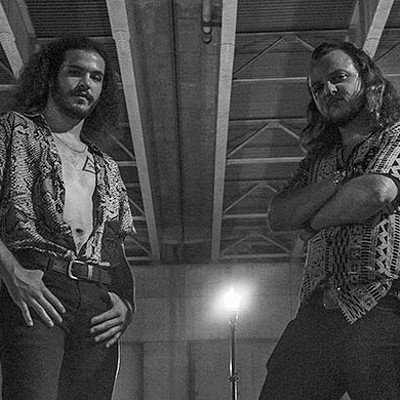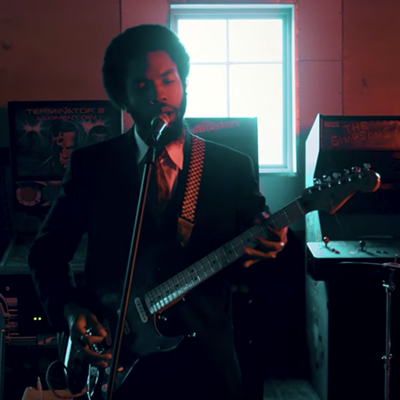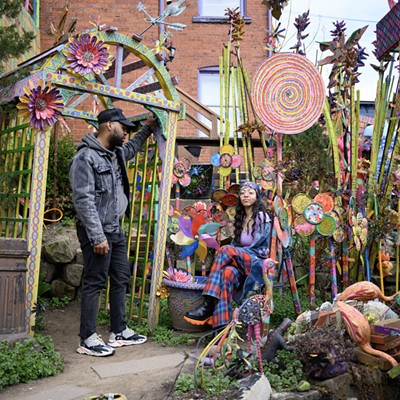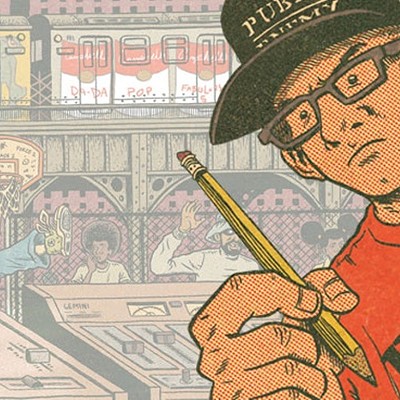Various Artists
Amandla! A Revolution in Four-Part Harmony -- Soundtrack
ATO Records
Too often in music-based films, the soundtrack serves not as a supplement, an equally intriguing yet somewhat dependent byproduct of the film, but as an independent entity that stands alone as a work, but without lending anything to buffer the film's message. As the soundtrack to a film about the music of the South African liberation struggle, Amandla! could have gone in many directions. More than a dozen tracks on the disc, the uplifting epic pop of "Lizobuya," the jazz and ska informed "Meadowlands," and Hugh Masekela's "Bring Him Back Home (Nelson Mandela)" for a few examples, could easily have stood as a good overview of the most approachable, NPR-worthy "world music" pop hits from the film. The resulting album would've been a fine collection, probably more saleable and radio-ready, but would've done little to inform the listener about the power this music held during the decades-long struggle for which it acted as rallying cry.
Thankfully, just as Amandla! is more than just a documentary film, this is more than just a soundtrack recording. Together with the obvious collection material, the producers have gathered tracks such as "Makuliwe," a passionate call-and-response sung in a Soweto hall, and "Injamblo/Hambani Kunye Ne-Vangeli," a work song performed in Pretoria Central Prison, tracks with a vital place within the history this music represents, and within the film.
That's not to say there's anything bad about the more pop-inspired music on Amandla!. South Africa is a nation with a rich history of Western-influenced music, although Amandla! doesn't include some of the names most readily associated with that history and South Africa's mbaqanga music: Mahlathini and the Mahotella Queens, Johnny Clegg, and the Boyoyo Boys are all absent. The big three of South African popular music, however -- Hugh Masekela, Abdullah Ibrahim and Miriam Makeba -- all appear with powerful cuts. (Masekela's "Bring Him Back," Ibrahim's folk-jazz "Kramat" and a young Makeba's performance of "Beware Verwoerd" all vie in different ways for the position of theme song for the film and soundtrack.)
One of the most striking aspects of Amandla! is to recognize -- through the progression of musical styles -- the expanse of time the apartheid period lasted in South Africa. "Meadowlands," recorded in 1955, sounds like pre-ska Jamaican R&B, inspired by American R&B as well as jazzy pop singers such as the Andrews Sisters. "Sad Times, Bad Times," performed by the original cast of King Kong -- the African "jazz opera" which brought Miriam Makeba and Hugh Masekela to the West -- is anachronistic New Orleans-inspired jazz, dated even for 1959. But before the album -- and the apartheid period -- comes to an end, we're listening to Masekela's "Stimela," informed by '60s and '70s jazz, and Joe Nina's smooth modern synth-drum pop song "S'bali." It's one thing to look at dates and think of apartheid as a mere number of years; to hear, in the timeline of music, the lifetimes that it swallowed is somehow more saddening.
From choral song to town hall call-and-response, Afro-pop and jazz to pure folksong, Amandla! delivers music that ranges from uplifting recognizable pop, easy on Western ears, to rough prayers and protests that fall heavily from a distant world, provoking and agitating the listener. As Abdullah Ibrahim says on the track called "Did You Hear That Sound," "If somebody tells you in dreamtime that you'd better do something, you'd better do it."
Thankfully, just as Amandla! is more than just a documentary film, this is more than just a soundtrack recording. Together with the obvious collection material, the producers have gathered tracks such as "Makuliwe," a passionate call-and-response sung in a Soweto hall, and "Injamblo/Hambani Kunye Ne-Vangeli," a work song performed in Pretoria Central Prison, tracks with a vital place within the history this music represents, and within the film.
That's not to say there's anything bad about the more pop-inspired music on Amandla!. South Africa is a nation with a rich history of Western-influenced music, although Amandla! doesn't include some of the names most readily associated with that history and South Africa's mbaqanga music: Mahlathini and the Mahotella Queens, Johnny Clegg, and the Boyoyo Boys are all absent. The big three of South African popular music, however -- Hugh Masekela, Abdullah Ibrahim and Miriam Makeba -- all appear with powerful cuts. (Masekela's "Bring Him Back," Ibrahim's folk-jazz "Kramat" and a young Makeba's performance of "Beware Verwoerd" all vie in different ways for the position of theme song for the film and soundtrack.)
One of the most striking aspects of Amandla! is to recognize -- through the progression of musical styles -- the expanse of time the apartheid period lasted in South Africa. "Meadowlands," recorded in 1955, sounds like pre-ska Jamaican R&B, inspired by American R&B as well as jazzy pop singers such as the Andrews Sisters. "Sad Times, Bad Times," performed by the original cast of King Kong -- the African "jazz opera" which brought Miriam Makeba and Hugh Masekela to the West -- is anachronistic New Orleans-inspired jazz, dated even for 1959. But before the album -- and the apartheid period -- comes to an end, we're listening to Masekela's "Stimela," informed by '60s and '70s jazz, and Joe Nina's smooth modern synth-drum pop song "S'bali." It's one thing to look at dates and think of apartheid as a mere number of years; to hear, in the timeline of music, the lifetimes that it swallowed is somehow more saddening.
From choral song to town hall call-and-response, Afro-pop and jazz to pure folksong, Amandla! delivers music that ranges from uplifting recognizable pop, easy on Western ears, to rough prayers and protests that fall heavily from a distant world, provoking and agitating the listener. As Abdullah Ibrahim says on the track called "Did You Hear That Sound," "If somebody tells you in dreamtime that you'd better do something, you'd better do it."

















